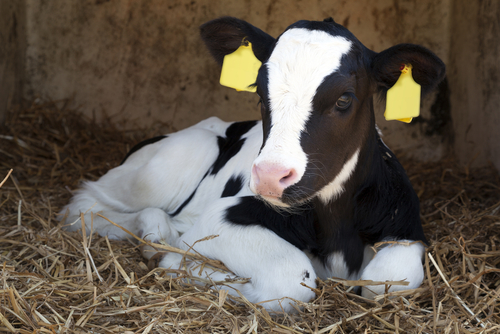Calf was unresponsive after its birth
By Diego Flammini
Assistant Editor, North American Content
Farms.com
Imagine that after the birth of a calf, the animal became unresponsive and appeared to be in danger.
What would you do?
If you’re someone like Andy Benson, an assembly line worker in Sussex, New Brunswick who helps out on his family’s farm in Bellisle Creek, you perform CPR on the calf.

In an interview with the Canadian Press, Benson said the animal, born on Feb. 20, kicked a few times and “went dead” after it was born. After clapping its sides didn’t bring the calf around, he began performing CPR.
Benson said he saw a similar incident on TV and decided it was worth a shot.
“I wrapped my hand around his mouth and plugged off one nostril and just blew into the other nostril,” he said. “I kind of beat on his chest a little bit too to keep his heart pumping.”
Benson said he was unsure if the calf would make it through the ordeal.
“I didn’t know if it was going to survive,” he said.
According to Benson, the calf, aptly named Lucky, was breathing short breaths and not moving.
Benson said as the calf started to come back to life, they tried to get the calf upside down to get it to spit up anything that was caught in its throat. Benson said he ended up completely covered.
Benson reported that the calf is doing well, is growing well and doesn’t seem to be showing and ill effects of the ordeal.